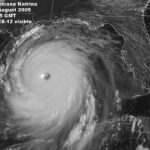According to Banco Central do Brasil, Brazil’s current account deficit was $5.2 billion in July 2024. This is a significant increase from $3.6 billion during the same time period last year.
This unexpected growth highlighted Brazil’s economic difficulties. The market expected a difference of $4 billion.
The trade surplus is shrinking despite rising imports
Brazil’s current-account deficit is mainly due to the growth of the service deficit which has increased from $1.6 billion up to $4.75billion.
This spike was primarily caused by the remarkable increase of 70% in net transportation services costs, reaching $1.6 billion. The trade surplus fell by $516 millions to reach $7.1 billion.
This change was largely due to a large increase of 15.2% in imports that exceeded the 9.3% growth in exports.
Changes in the primary and secondary earnings
Brazil’s Income Accounts showed divergent trends despite the worsening current account deficit.
In the face of an unsettling economic climate, this is a small but encouraging improvement.
The surplus on secondary income increased from $107 to $0.5 billion.
Divergent changes to Brazil’s external accounts bring attention to complex mechanisms in action.
Economic challenges to navigate ahead
Brazil’s economy is facing serious economic problems, as evidenced by recent statistics, showing the largest deficit of the current account in the last seven months.
As they analyze the factors which have contributed to the expansion of this deficit, policymakers and economic stakeholders examine possible solutions to correct the imbalance.
A comprehensive strategy is needed to avoid potential obstacles, promote sustainable growth, and steer Brazil away from any possible pitfalls.
Brazil’s debt continues to grow since June
Brazil’s current account deficit was $4 billion in June, up from $0.8 billion the previous year.
The deficit was at its highest level since 2014. This indicates unsettling financial problems reminiscent of the severe economic crisis that hit the country.
Exports fell by 1.8%, while imports rose 13.2%.
Brazil’s trade deficits were exacerbated by a $4.1 billion increase in services and an $6.2 billion primary account deficit. This was due to the pressure of its main ally China, which has decreased their demand for agricultural commodities.
Brazil faces major challenges in its economy, as shown by an extensive analysis of the current account, including evolving primary accounts imbalances, and growing deficits both for goods and services.
The patterns show the importance of focusing on trade imbalances to increase exports. They also highlight the need for sustainable economic policies that can help navigate unpredictable times.
To create a more stable and resilient economy that is able to withstand external shocks, and can support growth over the long term and stability in Brazil, it’s important to first identify and eliminate Brazil’s underlying current account deficits.
The post Brazil’s Current Account Deficit Widens To $5.2 Billion In July could be updated as new information unfolds






